Question

Hi Lynda,
I have an 11 year old algae eater - a plecostomus. He's been healthy his entire life, but recently he's got a single ich spot on his nose. I'm not sure what caused it - it could have been many things. Up until July, he's only shared a 49 gallon tank with a full grown lemon african chiclid, who was born in the tank back in '99. There were other fish but they'd all died off over the years until those two were the only ones left.
Gillbert, the african chiclid, got sick around May and we took him out and put him in a quarantine tank for five weeks, then moved the algae eater, whose name is too ridiculous to put here, into the quarantine tank and gave the 50 gal a thorough cleaning (it's been used constantly for 15 years). Then we moved the tank downstairs onto a new stand, set it up with new gravel and plants, but the old porous rocks. We let it run with a scapegoat chiclid for a few days and then reintroduced the algae eater and Gillbert, sans the scapegoat.
Gillbert died about a month later, which wasn't that surprising, he was ten years old. And then we got 4 new chiclids, the same breed - lemon african chiclids. And now the algae eater has a little ich spot on his nose. It's only one very small spot on a huge algae eater - 8" long and a inch and a half wide - but I don't want to let it get worse. I don't know if it's because the tank's a lot cleaner than it was before or the stress moving, of losing Gillbert or the four new chiclids.
Normally, I'd slowly raise the water temperature with a heater to about 80 degrees and add 49 teaspoons on aquarium salt, which we already have. However, we just spotted a baby chiclid hiding in the rocks and we don't know how many we can't see. Will treating the ich on the algae eater hurt the baby chiclids? If so, what should we do?
Thanks so much.
AnswerHi Dani,
The change may have stressed your fish. Stressed fish are vulnerable to parasites. Did you cycle your tank well enough before adding fish to it? By this I mean, there should have been no ammonia, no nitrites, and nitrates should have been low. If your tank didn't cycled well enough, then you could lose fish. It takes more than a few days for a tank to cycle properly. It takes weeks! The best way to cycle a tank is to buy a used sponge, or even your old sponge would have done the job. Then you let your tank run with no fish in it for 3-4 weeks until your water chemistry is perfect. A sponge is good for a very long time. It is good till it is old, ragged, and falling apart. An old sponge is full of good bacteria, and should be rinsed in water you have removed from the tank when cleaning your filter. Never rinse a sponge under tap water, it would kill all the good bacteria your sponge holds. Check your water for ammonia, nitrites, and nitrates. If you do have ammonia, and nitrites, do a water change according to the ammonia, and nitrites you have. You must get rid of this before you treat your tank. Once your water chemistry is right, buy Quick Cure, and follow the directions on the bottle. You may lose your fry, but I feel you have no choice. One little ick on a fish, and you can be sure you have some hatching in your gravel, and soon you will have an infestation. Don't forget to remove your carbon when adding the medication. After the first treatment, let them be for two days, and do a 25% water change siphoning from the bottom. Treat them again, even if the algae eater looks well, and the ick is gone. Sometimes we must do this 4 times to get rid of this nasty parasite.
I hope this helps
Lynda


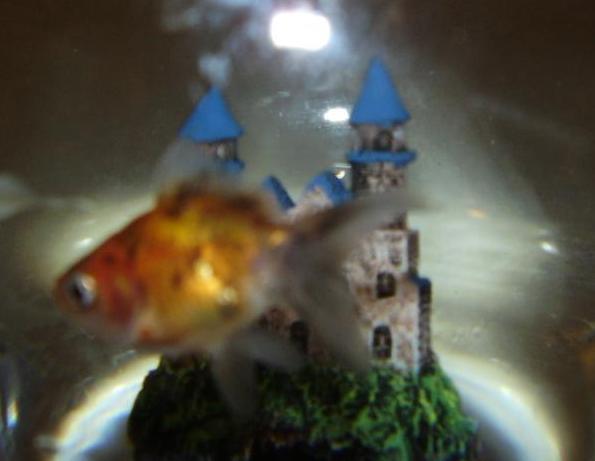 hand feeding fish
QuestionSpottie
QUESTION: Hi! Im really interest
hand feeding fish
QuestionSpottie
QUESTION: Hi! Im really interest
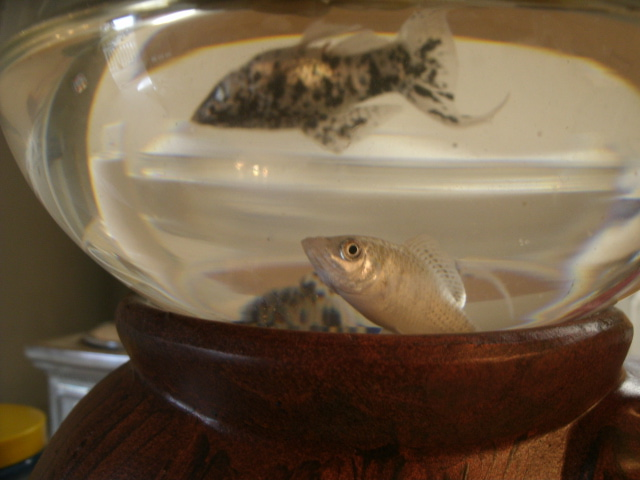 New fish; first time fish owner; Molly fish; tanks
Question
Fish Actual Tank
Hi. My roommate
New fish; first time fish owner; Molly fish; tanks
Question
Fish Actual Tank
Hi. My roommate
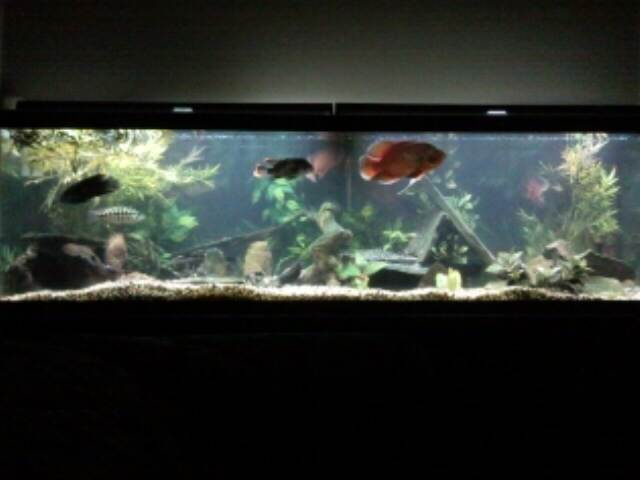 Another New-Age Cichlid Question
QuestionMy 125-gallon New Worl
QUESTION: Profess
Another New-Age Cichlid Question
QuestionMy 125-gallon New Worl
QUESTION: Profess
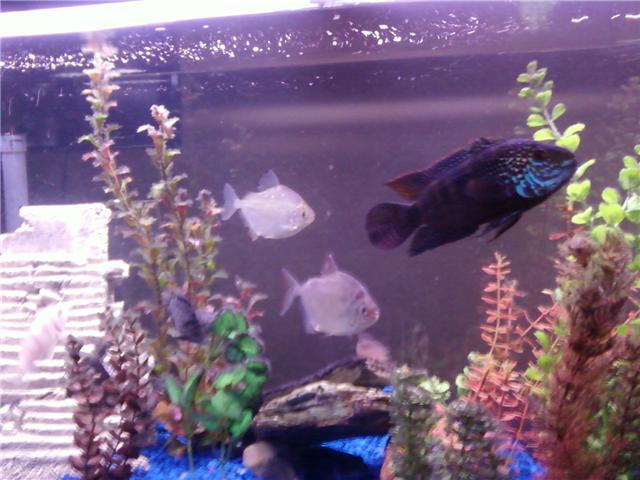 cichlid wont eat
Question
my fish
i have a large jack dempsy cichlid may
cichlid wont eat
Question
my fish
i have a large jack dempsy cichlid may
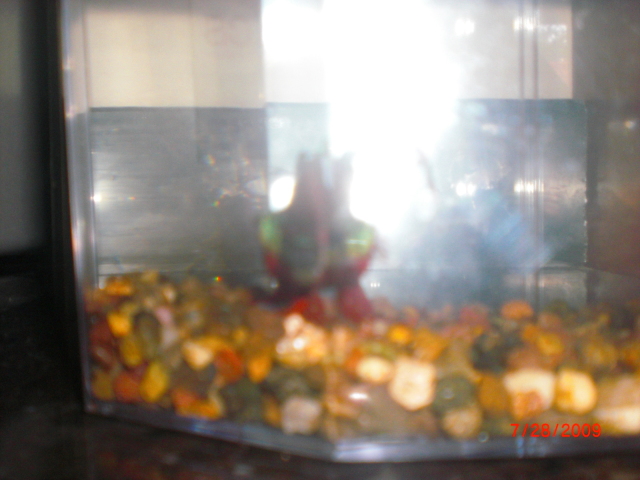 Fishs behavior
Question
Fish
I have a beta fish and every time i go to
Fishs behavior
Question
Fish
I have a beta fish and every time i go to